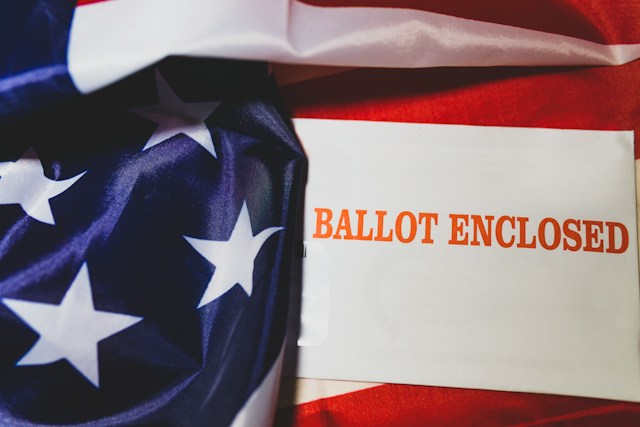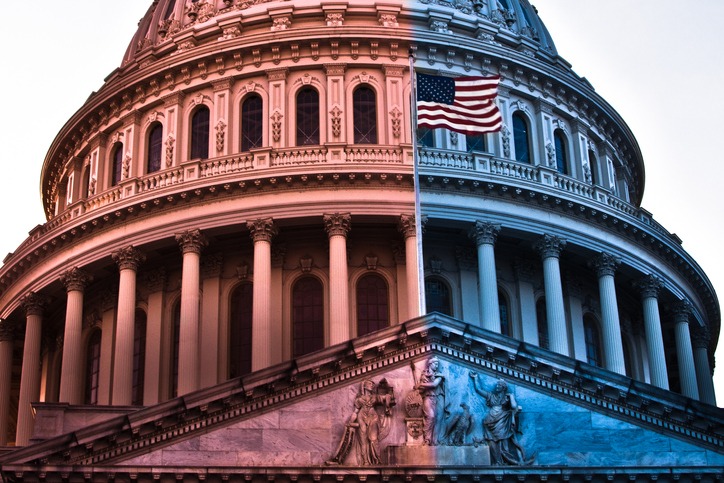Do you trust the government? A lot of people on both sides don’t. Some for good reasons. Some for bad reasons. Others do trust the government.
In a recent article, I talked about political privilege and how leaders use it for political gain and control, leading many to distrust the government.
But what if I told you that our trust in the government can come down to how much control we have or think we have?
By control, I mean our impact on politics and whether our actions matter and can change a political situation.
This is called political efficacy, and it’s a root cause of the country’s satisfaction or dissatisfaction with the current state of politics on both sides.
If political efficacy is high, a person feels that their political actions and opinions matter and that the government will acknowledge them and respond. People feel they have control within the political system, and that, along with other citizens and elected officials, can affect it.
If political efficacy is low, people feel their political actions and opinions don’t matter. That the government won’t acknowledge their concerns and that it may be corrupt or out for its own interests. People feel they do not have control within the political system and can’t bring about change, whether there is corruption or not.
In short, it’s whether our actions can affect the political culture.
Examples include participating in the political process, voting, or protesting in favor or against specific political issues.
And while political efficacy isn’t a new concept, it’s secretly at the root of our current state of politics.
Whether you’re a Democrat, Republican, or somewhere in between, political efficacy can drive how we look at politics and is, in part, behind the rise of current political movements.
In this article, we will examine how political efficacy impacts Democrats and Republicans and why it is vital for a healthy democracy.

Political Efficacy and Political Parties
One key element of political efficacy is whether someone is satisfied with how the political system functions.
If we are satisfied with the political system, we will most likely be happy with the leaders and representatives because they are focused on our needs and requests.
But that is not the case for many, as mentioned earlier.
Many feel the government does not listen to them and that the political establishment is only out for themselves at the expense of the people.
This comes in many forms from different political and social groups, both on the left and right.
The recent stigma seemed to start from the fallout from the Iraq War and the Great Recession, which led to the rise of populism within both political parties.
In short, the government, as well as the media, said that Iraq contained weapons of mass destruction, and when it turned out that they didn’t, many people felt lied to and began to question why we were there.
Then came the 2008 financial crisis and the government’s response.
With big businesses getting bailed out and a massive number of people losing their jobs, many felt the economic system was rigged against them.
These feelings led to the first instances of populism emerging with movements like Occupy Wall Street and skepticism of the Bush administration because of Iraq.
The Democratic Party combined this with economic populist themes of the rich versus the poor and increased awareness of social issues with similar anti-establishment themes.
Again, when political efficacy is low, people feel that political leaders are not listening to them. Populist views enhance this by pitting the establishment’s concerns against the people.
And that can be inherently a good thing. It can keep the government honest and accountable. But it can also lead to extreme views and politics, which is what happened on both sides.
It led to further left-wing progressive politics from the Democratic Party and leaders like Bernie Sanders, who embraced these populist sentiments.
It also established low political efficacy in Republicans.
Many Republicans, too, were frustrated with the wars and economy but also felt ignored by the government and society, which was seeing elements of these far-left politics play out within the country.
This set the stage for Donald Trump and the right-wing populist movement to pitch their message about the political establishment not listening to the concerns of the people.
And this movement has morphed into very extreme populist politics.
We see this playing out regularly, with instances where Trump will claim his legal issues are the government being weaponized by the Democrat elites and even conspiracy theories about how corrupt the establishment government is.
Both these populist movements elevated people with low political efficacy to high political efficacy because they now had the ability, or perceived ability, to change the government and elect leaders who would listen to them.
All in all, there is a trend. Low political efficacy can lead to populism, and populism can lead to extreme party politics that feed off and fight each other.
This is where we find ourselves now, and this is how political efficacy has helped to lead us here.
And if you’re discouraged by that, you probably suffer from low political efficacy.
But that can change.
If new leaders and movements emerge that embrace a more moderate approach, which can consider the people’s needs and reject extreme politics, then the cycle would reverse.
Your political efficacy would change, and because of the new political approach, you may feel you have more control over the political culture again.
Discouraged Republicans voting for a new candidate would exemplify this. The low political efficacy and discouragement would change because now they can support the moderate wing of the Republican Party and vote for that candidate.
But our elections must be highly politically efficacious for this to happen, which is currently also in question.

Political Efficacy and Elections
One of those right-wing populist messages from earlier is that the 2020 election was stolen from Donald Trump.
In one of my previous articles, Cheater, Cheater, Pumpkin Eater, I expressed a more in-depth opinion of that message. However, for our purposes here, the nature of the message itself lowers political efficacy.
The circumstances surrounding the 2020 election controversy can, and does, make citizens feel that they have less control over the political culture because the one significant way their voice can be heard is now in doubt.
It doesn’t matter if you are a Republican or a Democrat. You may now feel low political efficacy toward elections.
If you are a Republican, you may still feel that the election was stolen and that the government is rigging elections. This will lower your political efficacy towards elections because the whole electoral system may seem fraudulent, and there’s not much you can do about it except maybe support Donald Trump.
If you are a Democrat or others, you may also feel low political efficacy toward the election process. You know that if Donald Trump loses the general election, he’ll say the election was stolen again. This would cause more election instability and damage to the democratic process and our control over it. This proposition also creates a feeling of political exhaustion and apathy among many.
Feelings of limited control over elections also open the door for more populism.
This time, the populists pit the electoral system against the people. When combined with the earlier message of the corrupt establishment, they create only one solution to the problem: to support them and their populist leader.
This is what Trump does. He creates doubt in the political and electoral system, so people feel supporting him is the only solution to these problems.
Populist Democrats and leaders like Bernie Sanders can do this, too, although more in the ways described in the last section and less related to elections.
But a key to having proper functioning political efficacy is to have free and fair elections because it is an important, if not the most important, way we express our control over the government.
If many doubt elections, the democratic system is vulnerable because elections and participation are at the heart of democracy.
If people doubt or think the system is rigged, they feel like they are losing control. If people feel they are losing control, they may turn to other forms of efficacy, like outright support of a populist leader or other methods like violence. January 6th personifies this.
It’s what the populist leader looking to become an authoritarian leader would want. They want political efficacy to be low, people to feel like they have no control, and people to feel their participation does not matter, so they pledge outright support for them as leaders.
Countries where democracy has not been a fundamental foundation and civil society is weak are especially vulnerable to this.
However, this can begin to erode even the strongest democracies by causing problems within, which is how strong democracies can eventually fail.
Keeping political efficacy healthy in a democracy is essential. If we feel we have control and options of democratic control, including elections and different ways for our opinions to be heard, then populism, and by association authoritarianism, struggles to take root.
As we move through this next phase of our politics, we must ensure that the foundations of democracy and our participation are the most important concerns, not those of extreme party politics.
That is how we can keep political efficacy at a healthy level.
So, given all this, what is your level of political efficacy? What factors are currently influencing you the most? And how much control do you feel you have?
